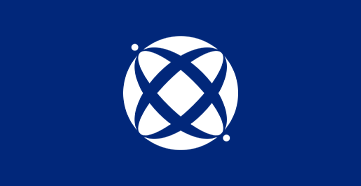|
|
Feb 17, 2023
This article will outline the development of China’s restrictions on the cross-border transfer of personal information (PI export), detailing PI export mechanisms provided by the Personal Information Protection Law. It will also explain the practical implications of the restrictions.

Sep 27, 2023
The rise in popularity of generative artificial intelligence (‘generative AI’) has ignited the discussion on whether junior employees can be replaced by it. Some have gone to the extent of questioning whether professionals, such as lawyers, can also be replaced by generative AI. Is it wise to replace junior employees or lawyers with generative AI? What factors should be considered before deploying generative AI tools in your business? To consider these questions, we first need to understand the basic workings of generative AI and what it can offer. Fundamentally, AI is intelligence that is not biological. The general understanding is that machines will be ascribed with this intelligence. These machines have the ability to interpret, learn from and process external data in a way that is similar to the capabilities of the human mind. Generative AI is a type of AI program that generates content from a data set. It uses deep learning, a type of machine learning system that behaves like a neural network to simulate the functions of a human brain. In other words, it can mimic human intelligence by exhibiting analytical skills to create new content. Not only can generative AI be utilised in chatbot programs to create text, but it can also be used in programs that can create images, sound or videos. This article will consider two major forms of generative AI, in the context of risks to businesses: chatbots using generative pre-trained transformer technology programs; and image generating programs.
In recent times, physical crowds are frowned upon, lest it spark the inadvertent transmission of the deadly Covid-19 virus across social groups. However, it is precisely in times like these that the true value of the crowd has emerged.
Apr 14, 2021
In the decision of The Yue You 902 and another matter [2020] 3 SLR 573 (Yue You 902), the Singapore High Court considered the rights of a trade finance bank seeking to enforce its security over cargoes pledged to it by its customer.
Post-employment restrictions: non-compete clauses
Oct 21, 2022
Pre-arbitral discovery in Singapore was generally disallowed by the courts. However, with the advent of the new Rules of Court in Singapore taking effect as of 1 April 2022, it seems appropriate to review Singapore’s position on pre-arbitral discovery and whether it might be allowed under the new Rules of Court.
Jun 14, 2022
Indian courts have adopted a novel and commercially pragmatic approach in ordering recalcitrant debtors to deposit money as security in aid of a claim in arbitration where there are clear admissions of liability or their defence is moonshine.

Jul 08, 2025
Many common law jurisdictions have relied on the test of transnational issue estoppel to prevent repeated attempts to resist the enforcement of an arbitral award, particularly when such attempts have proved fruitless when attempting to set aside the award in the courts of the seat. However, the traditional test of transnational issue estoppel also carries significant disadvantages in terms of time and cost. The Singapore Court of Appeal in the case of The Republic of India v Deutsche Telekom AG [2023] SGCA(I) 10 has proposed a new test, known as the Primacy Principle, that creates a presumption that a prior seat court decision on the validity of the award is determinative, and thus leads to a refusal to entertain subsequent attempts to resist enforcement of an arbitral award. However, the Primacy Principle remains vague and undefined, which may lead to potential unforeseen consequences. This article examines the Deutsche Telekom case, the Primacy Principle, and considers whether such a principle will provide practical benefit to international arbitration practitioners.
Nov 29, 2024
The IBA Annual Litigation Forum 2024 started on 18 April with the first session concerning the Choice of Court Convention 2005 and Judgments Convention 2019, two recent conventions of the Hague Conference on Private International Law (HCCH). Sara Chisholm-Batten (Michelmores, London) and Dr Urs Hoffmann-Nowotny (Schellenberg Wittmer, Zürich) moderated the distinguished panel consisting of Dr Christophe Bernasconi (Secretary General of the HCCH, The Hague), Blossom Hing (Drew & Napier, Singapore), Thomas Plewman KC (Brick Court Chambers, London), and Dr Norel Rosner (European Commission, Brussels).
Dec 20, 2023
This article looks at the decision in Baffinland Iron Mines LP v Tower-EBC GP/SENC, where the Ontario Superior Court of Justice and Court of Appeal for Ontario considered the ability to appeal an arbitral award made in an arbitration conducted under the auspices of the International Chamber of Commerce (‘ICC’) and pursuant to the ICC Rules. In short, the Ontario courts determined that the parties were bound by the ICC Rules by virtue of their incorporation by reference into the governing arbitration agreement. These decisions confirm the limited rights to appeal an arbitral award in Canada and reinforce its recognition as an arbitration-friendly jurisdiction.
The law of anti-suit injunctions in India - Litigation Committee newsletter article, April 2020
Oct 02, 2023
The introduction of the competition framework is reshaping how oil and gas transactions are operated in Angola. Although recent practice by the Angolan Competition Authority appears to be consistent, a formal position can help to bring clarity. Parties should adjust completion conditions accordingly to strike the right balance between execution and compliance risks.
Many dispute resolution clauses today are multi-tiered, setting out a consultation process that includes an amicable settlement of disputes prior to commencement of arbitration or litigation. The consultation process may be relatively informal (for instance, between designated representatives of the parties) or more formal (for instance, with a third-party mediator/dispute resolution board).
It is a common feature of financial fraud schemes for the proceeds of the fraud to be scattered across several jurisdictions, frequently through a network of connected entities. For the victims of fraud, the first step in attempts to salvage their investments will often be to seek a worldwide freezing order in the courts of the country in which the defendants and their activities are centred. In many such cases, however, the freezing order in the primary jurisdiction will not be sufficient
Mar 29, 2023
This article analyses the sufficiency of a tax residency certificate in claiming treaty benefits in light of the principal purpose test introduced under the OECD led multilateral instrument framework, domestic general anti-abuse rules and recent Indian judicial developments.
A hybrid of mediation and arbitration known as Med-Arb is a less formal, more expedient alternative dispute resolution (ADR) process which can be more flexible when resolving disputes. Although rare in Europe, it is widely used in Asian jurisdictions. In order to remain at the forefront of international dispute resolution, Europe could consider the benefits of Med-Arb: namely, a swift and cost-effective resolution, avoiding more traditional costly and time-consuming processes [...]

Jul 08, 2025
The Singapore Court of Appeal’s landmark decision in The Republic of India v Deutsche Telekom AG [2024] 1 SLR 56 clarified the application of transnational issue estoppel in international arbitration under Singapore law. The case arose from India’s attempt to resist enforcement in Singapore of an arbitral award made in Switzerland, after its challenges had already been rejected by the Swiss Federal Supreme Court. The Court of Appeal held that transnational issue estoppel prevents parties from re-litigating issues before an enforcement court that have been finally determined by the seat court, provided the elements of transnational issue estoppel are met. The majority of the Court also discussed obiter the ‘Primacy Principle’, which would give presumptive weight to seat court decisions on award validity, subject to exceptions like public policy or procedural injustice. The judgment aligns Singapore with other leading jurisdictions in promoting finality and efficiency in arbitration while positioning the Singapore judiciary as a thought leader, cementing Singapore’s position as a leading arbitration hub. The decision provides clarity and reduces opportunities for dilatory tactics in award enforcement, though the scope of the Primacy Principle remains open for further development.
This article analyses the existing law relating to the valuation of damages in contract in light of the Covid-19 pandemic, with a particular focus on events occurring after the termination of contract but before the assessment of damages. Such post-termination events can come in a variety of forms, which can be either purely external (eg, border closures and travel restrictions) or directly related to the parties (eg, cashflow difficulties caused by waning consumer demand). [...]
With legal professional privilege a topic of daily debate – and often critical importance – does the English Court of Appeal decision in SFO v ENRC represent a step forward for privilege or a missed chance? The writer argues that the answer is probably ‘a little of each’! With the continuing significance of English common law decisions for a wide range of jurisdictions, the judgment deserves careful attention. The law remains in a state of flux, and the decision also offers thoughts on whether Three Rivers
Oct 18, 2022
On 23 January 2021, Law no. 14,112/2020 came into force in Brazil, bringing forth important amendments to the Brazilian Insolvency Act (Law No. 11,101/2005). Top among them is the adoption of United Nations Commission on International Trade Law (UNCITRAL) Model Law on Cross-Border Insolvency, following the example of more than 50 other jurisdictions.
The taxation of business restructuring has been a focus point in international taxation in recent years. Israel, often dubbed a startup nation, sees a relatively high number of startups acquisitions by multinationals, which are followed by a transfer of the intellectual property (IP) of the newly acquired Israeli company.

Nov 27, 2024
This article reviews the development of emergency arbitrator proceedings (EA) internationally in institutional arbitration rules and in national laws since the ICDR Rules first offered EA in arbitration in 2006, including the forms of urgent interim relief available in EA pending the constitution of an arbitratlon tribunal. Among other topics, it reviews why parties choose EA, the interaction of EA with national court systems, provides a comparison between EA and national courts’ proceedings including as to cost, the types of interim measures available, coercive powers to require compliance, their respective scope as to third parties, whether ex parte applications are permissible, the enforceability of interim relief orders, the nature of the order or award and whether a binding decision is made in EA, and the approach of jurisdictions to enforcement of orders made in EA. The article provides statistics as the uptake and use of EA proceedings from 2020 to 2023 in ICC, SIAC, HKIAC, SCC and LCIA arbitrations and reviews the different approaches to the substantive standards for granting relief in EA proceedings. It discusses EA relief and performance bonds. Finally, it reviews the considerations relevant to the future development of EA.
Non-compete clauses are standard in employment agreements, especially with senior executives, and also in M&A deals. Through non-compete clauses, founders and key executives exiting the business are bound by certain restrictions. This article considers non-compete clauses in India, the United Kingdom and the United States, particularly in the context of the current Covid-19 pandemic.
Jun 04, 2024
This article explores the complex implications of interlocking directorates and common ownership on competition, particularly in the Indian context. Through a comparative analysis, empirical evidence and case studies from across the globe, the article evaluates whether interlocking directorates has potential for both anti-competitive behaviour and innovation. It also explores whether it is possible that common ownership can enhance, rather than hinder, competitive dynamics.
Over the years, the concept of public policy as a ground for setting aside an arbitration award has evolved, with many developed arbitral jurisdictions adopting a somewhat restrictive notion of public policy. Last year, however, the Supreme Court of Mauritius (‘Supreme Court’) set aside an arbitral award in STC v Betamax [2019] SCJ 154 on grounds of public policy
|





















